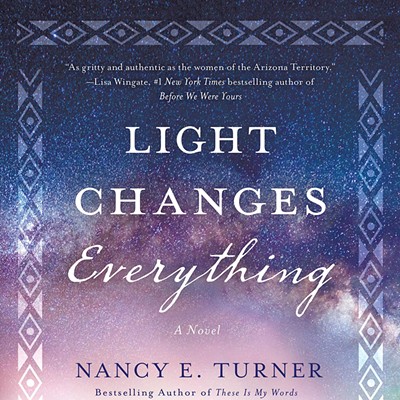HOW MANY WRITERS have written a book about being a writer? From James Joyce's Portrait of an Artist as Young Man to Joseph Heller's recent Portrait of the Artist as an Old Man and all the variations in between, the idea seems a particularly attractive modus operandi to approaching a work of fiction. When Charles Baxter's alter ego Charlie of The Feast of Love tries to sort out material for his new novel during one night of insomnia, it's difficult to suppress that voice groaning, "Again?" Fortunately, Charlie quickly fades.
Charlie takes his neighbor Bradley's advice. "Why don't you let me talk? Let everybody talk," he says. Using Bradley as the main focus, Charlie constructs his novel--this novel--from Bradley's voice and a variety of characters connected to him. Ex-wives, neighbors and employees all get a chance to speak. Together this cast wanders through a loosely constructed narrative that centers on love.
The metafiction here will never rank up there with South American greats, and adds more distraction than value to the work. This is, nevertheless, a highly entertaining novel.
Bradley, an artist himself, provides the central metaphor with his painting "The Feast of Love." The painting depicts a feast consisting of color and light, but "no one's ever allowed to go there. You can see it but you can't reach it." Bradley has hidden this, his best painting, in his pile of musty basement rejects. After the ex-wives have their say he is able to bring it out on display, but it never goes on sale. OK, Charlie, I guess we get the point.
More interesting than Bradley's wives, dog or goofy mannerisms is the couple in his employ, Chloe (pronounced Chlo-ay, something that gets annoying to think about over the course of a novel) and Oscar. This tough young couple deliver alternating narratives regarding their excruciatingly ecstatic love affair.
Oscar, a recent drug rehab graduate, gets high with his girlfriend sharing their newest addiction, love. These two make love in Chloe's apartment, Oscar's father's house, Bradley's house, and even on the 50-yard line of a football field, and they describe it all in graphic detail. Together, they generate great heat.
Oscar and Chloe also provide a needed diversion from the suburbs of Ann Arbor and shopping malls that unfortunately seem as dull as they sound. Of course, this setting is probably usurped from the real Charles Baxter, as he himself lives in Ann Arbor, probably in a similar suburb close to the University of Michigan where he teaches. This kind of Happy Valley setting adds little to a novel.
In an interview Baxter speaks of the problem of using happiness, "a great challenge for writers," because "happiness resists plot." The concerns of love in the novel all do involve some problem, although in Oscar and Chloe's case the twist can be seen a mile away.
What ultimately saves this work is Baxter's writing style. It's that good old straightforward American stuff from writing schools. Simple declarative sentences, first-person narratives, and personal stories make the novel a pleasure to read. Baxter may pull some punches in his use of Charlie, but his writing style does not. He develops characters readers can sympathize with and lets them tell their stories in their various individualized voices. Fiction may be the space that most closely approximates an experience inside someone else's consciousness. Baxter puts his readers inside minds that are filled with the conflict that is the stuff of life.
Charles Baxter obviously cares for his characters. Even at their silliest, they merit his and therefore his readers' tenderness and respect. In this way the work does become a feast of love. The novel is so enjoyable that even Charlie's intrusion can be forgiven.








